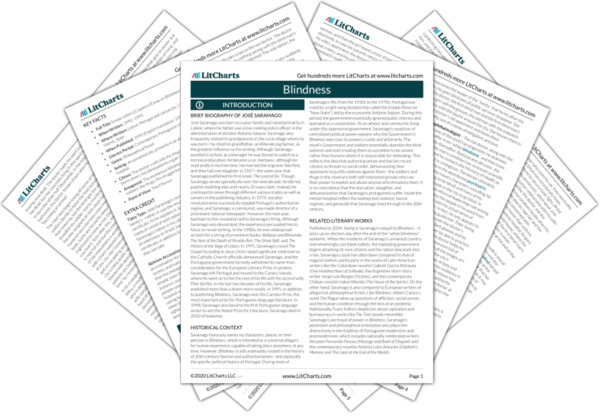Soon, three more people arrive: one of
the doctor’s employees,
the man from the hotel with whom the girl with the dark glasses had sex, and the rude policeman who took the girl home. Then, a huge crowd of uproarious
blind people stumbles into the ward. The people who cannot find a bed leave for another ward, and
the Government’s instructions play on the loudspeaker. The newcomers protest that they were promised a cure, not a quarantine, and the doctor notes that things in the
hospital are becoming tense. No more food comes on this day, and the injured
car-thief’s leg is “completely swollen” by the evening. Whispering desperately, he tells
the doctor’s wife, “I know you can
see”—but she denies it, goes back to bed, and tells the doctor that the thief’s infection is serious.
